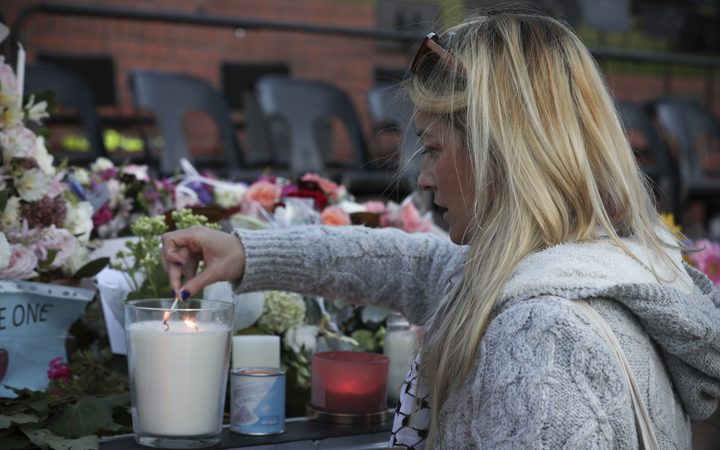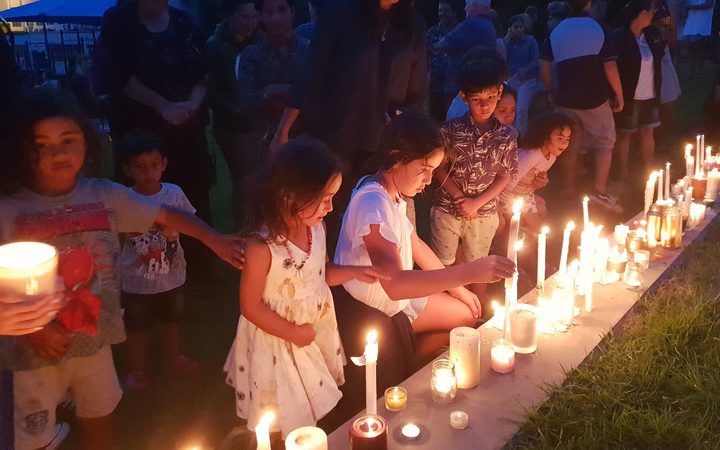Mosque attacks: Burying the Christchurch dead, with respect and dignity
Kate Newton , Senior Journalist, In Depth
Volunteers are gathering in Christchurch to help give mosque shooting victims dignity and respect in death.
Salwa Mustafa didn't need a formal identification process to confirm her husband Khalid was dead. She watched him die of his injuries in Christchurch Hospital.
"He was laying there, shot, taking his last breath, I sat beside him maybe half an hour, maybe more, I can't remember, watching him dying. I saw he was shot in his head and neck and leg and his arm … and after that he died."
Her 16-year-old son Hamza was killed too, gunned down next to his father at the Masjid al-Noor mosque on Deans Ave, in Riccarton.
But three days after New Zealand's worst act of terrorism, Mrs Mustafa was still waiting yesterday evening for her son and her husband to be returned to her.
"I don't know what they [the hospital authorities] are doing… The graves are already prepared and we're just waiting until they give us the bodies and we will do that. That is respect for the dead bodies, to bury them after they are dead as soon as possible."
For the families of the mosque shooting victims, the wait for their loved ones' bodies to be returned has been agonising.
The formal identification process is painstaking, time-consuming and - police and other authorities say - absolutely necessary.
But it butts up against Islamic funeral rites, which specify - as Mrs Mustafa points out - that the burial should take place quickly.

A person lights a candle at a vigil in Wellington yesterday. Photo: RNZ
Islamic Federation president Mustafah Faruq said that was for spiritual reasons rather than practical ones.
"It's not because the body will decompose or anything like that. It's about bringing conclusion to individuals."
Unlike Pākehā or Māori culture, there is no long wake or tangihanga, he said.
"We don't remember by physically looking at them or by putting their pictures up or by doing other stuff.
"The way we remember people is through our prayers. When I conduct my prayers … all my loved ones who have passed away, I pray for them and their image comes to me and I can see them."
As the wait continues, Mr Faruq's organisation has been amassing volunteers from around New Zealand to assist with funeral and burial rites - so that when victims are returned to the people who love them, there is no further delay.
"Right now we have close to 30 individuals who are very well-versed in the processes involved in Islamic burial, they are in Christchurch."
Another 20 Islamic scholars have also arrived in the city, ready to preach and provide counsel to the families, Mr Faruq said.
The city council has been supportive, providing land for graves to be dug and a space where the bodies can be prepared, following the process of al-Kafan.

A vigil in Whangarei last night Photo: RNZ / Lois Williams
First, Mr Faruq says, each person will be washed. Volunteers with expertise in Islamic funeral rites and experience in handling bodies will be there, but family members can help.
"Once that person is washed, then the body will be shrouded in two pieces of white cloth. It doesn't matter who the person is - they could be the prime minister, or the president; it could be the richest or the poorest - everybody will be shrouded in these two pieces."
That simplicity applies to the burial itself.
"We don't normally bury people in a casket. Every body, whether it's brought in a casket or a bier, will be taken off, it will be [placed in the grave], there will be wood that can be put on top of it and then soil will be put on top."
Both the shroud (the kafan) and the form of burial hold the same special symbolic importance, Mr Faruq said.
"When we pass away we are not taking anything with us. For those who are alive when this process is taking place, the lesson for them is to keep remembering that everything will come to an end.
"The wealth we accumulate, the power we accumulate, and all other ordinary pursuits that we have, have come to an end."
If someone is buried in a very expensive casket - or a very cheap one - the differences that dogged them in life will follow them to the graveyard, Mr Faruq says.
"We want, at the time people die, to bring everybody to the same level so that people realise it's better to focus on living together peacefully, harmoniously, sharing and being happy; rather than the rat-race [and] accumulation."
Council grave-diggers, who are aware of the requirements, will align the graves in such a way that when the person is placed, lying on their right-hand side, in a small cavity at the bottom, they will face in the direction of Qibleh - aligned with Mecca, as in prayer.
Those tasked with handling the bodies are not new to the job, but they have been offered any support they need, Mr Faruq said.
"They probably have not handled people who are traumatised in the way these people have been traumatised.
"Psychologically they are prepared but they are going to be working very closely with the police liaison officers and the coroner [and] if any of the bodies are traumatised they will be informed in advance."
Before the process begins, family members will be given plenty of time to decide when and where they would like their relatives to be buried, he says.
"Burial can be done either in small numbers or collectively… We will offer whatever they need to get that burial done."
There is one rule to obey above all, though: "We treat the body with respect."



 Richard S. Ehrlich: A Deadly Earthquake & Chinese Construction
Richard S. Ehrlich: A Deadly Earthquake & Chinese Construction Ian Powell: It Does Matter To Patients Whether They Are Operated In A Public Or Private Hospital
Ian Powell: It Does Matter To Patients Whether They Are Operated In A Public Or Private Hospital Gordon Campbell: On Marketing The Military Threat Posed By China
Gordon Campbell: On Marketing The Military Threat Posed By China Binoy Kampmark: Olfactive Implications - Perfume, Power And Emmanuel Macron
Binoy Kampmark: Olfactive Implications - Perfume, Power And Emmanuel Macron Martin LeFevre - Meditations: True Abundance
Martin LeFevre - Meditations: True Abundance Binoy Kampmark: Junk Science And Bad Policing - The Homicide Prediction Project
Binoy Kampmark: Junk Science And Bad Policing - The Homicide Prediction Project